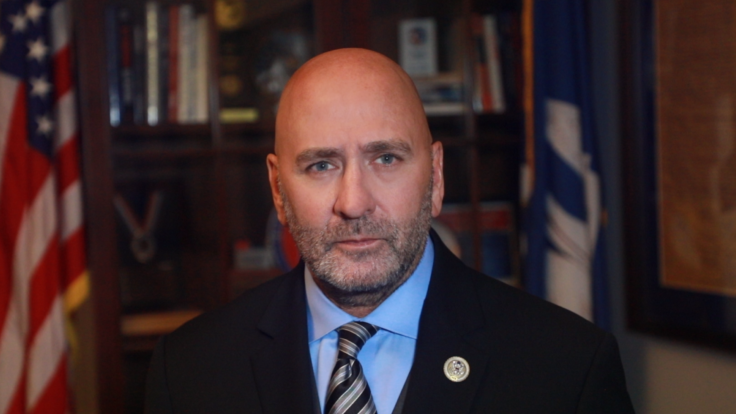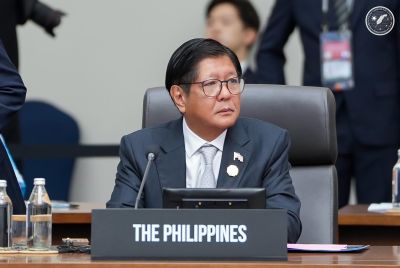Clay Higgins Defends 'NO' Vote: Lawmaker Claims He Must Protect 'Innocent People'
Higgins warned the release could harm people not linked to Epstein's crimes.

In a political climate where the demand for openness around the Jeffrey Epstein case remains intense, Higgins's insistence that he voted 'no' to protect 'innocent people' has reignited ethical questions about how far transparency should go and whether mass document releases risk sweeping up bystanders alongside suspects.
This bold justification has drawn wide public curiosity as international interest in the long-standing scandal continues to surge, marking Higgins as a solitary figure against the political current.
The Lone 'No': Clay Higgins and The Perils of Broad Disclosure
The House vote on the transparency legislation marked a truly rare moment of bipartisan alignment, with Democrats and Republicans overwhelmingly supporting the measure to require the US Department of Justice to release its Epstein-related files.
This widespread support comes amid persistent public suspicion regarding how much the government knew about Epstein's dealings and the extent of institutional protection allegedly afforded to influential associates.
With the measure passing by such a near-unanimous margin, the spotlight instantly shifted to the one Republican lawmaker who chose to break ranks. Higgins, representing Louisiana and a noted member of the House Freedom Caucus, stated emphatically that he had been a 'principled NO from the beginning'.
His rationale hinged on criminal justice procedure and the potential for collateral damage. Higgins argued that the overly broad nature of the release, as currently written, risked exposing thousands of individuals who were not complicit in wrongdoing but were merely mentioned in investigative records for entirely routine reasons.
His deep concerns specifically centre on individuals such as witnesses, alibi providers, informants, and family members who may appear in the files despite having no link whatsoever to Epstein's actual crimes.
Higgins maintained that long-standing criminal justice procedures existed precisely to prevent such fallout, and he suggested that the bill, in its current form, risked fundamentally undermining those established protections.
He voiced a specific fear that the disclosure, once made public, could lead to severe reputational harm, online harassment, or public speculation directed at people who 'had nothing to do with Epstein's crimes'.
This concern positions the conservative lawmaker as an unexpected, if controversial, advocate for the privacy of those inadvertently caught in the web of the scandal.
Clay Higgins Demands Stronger Safeguards Before Full Transparency
Although his vote stood as a lone dissent, Higgins has consistently stressed that his position is not one of opposition to transparency itself. Instead, he has urged the Senate to critically examine and strengthen the legislation with clearer, more explicit protections for individuals 'named but not criminally implicated'.
He strongly indicated that he would be willing to support the bill if the upper chamber introduces amendments that successfully narrow the scope of disclosure and bolster necessary privacy safeguards.
The gravity of Higgins's objection was underscored by the fact that even House Speaker Mike Johnson, also from Louisiana, had previously raised similar privacy concerns. However, Speaker Johnson ultimately chose to back the bill, publicly stating that transparency was essential given the scale of the global attention on the Epstein case.
His final decision highlighted the truly unusual nature of Higgins's solitary dissent, particularly in a chamber where both political parties had treated the measure as a critical priority.
Conversely, supporters of the legislation firmly argue that the bill already allows for necessary redactions. They maintain that these existing provisions are robust enough to prevent the type of unintended harm cited by the lawmaker, thereby enabling the public release of crucial records while simultaneously shielding victims and other uninvolved individuals.
Higgins further defended his work on the House Oversight Committee, which has pursued the release of Epstein-related materials through a separate, controlled process. According to the lawmaker, the committee has already released more than 60,000 pages of documents in a methodical manner, framing this measured approach as significantly safer than the broad public release mandated by the new transparency bill.
The overall debate reflects the intense pressure to make these records available, satisfying public demand for accountability, even as the complex ethical and procedural debate over privacy safeguards remains fiercely unresolved.
© Copyright IBTimes 2025. All rights reserved.




















